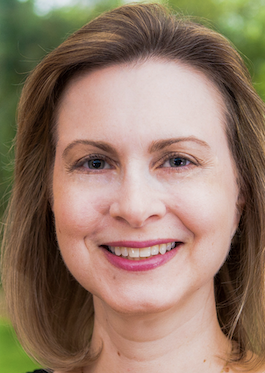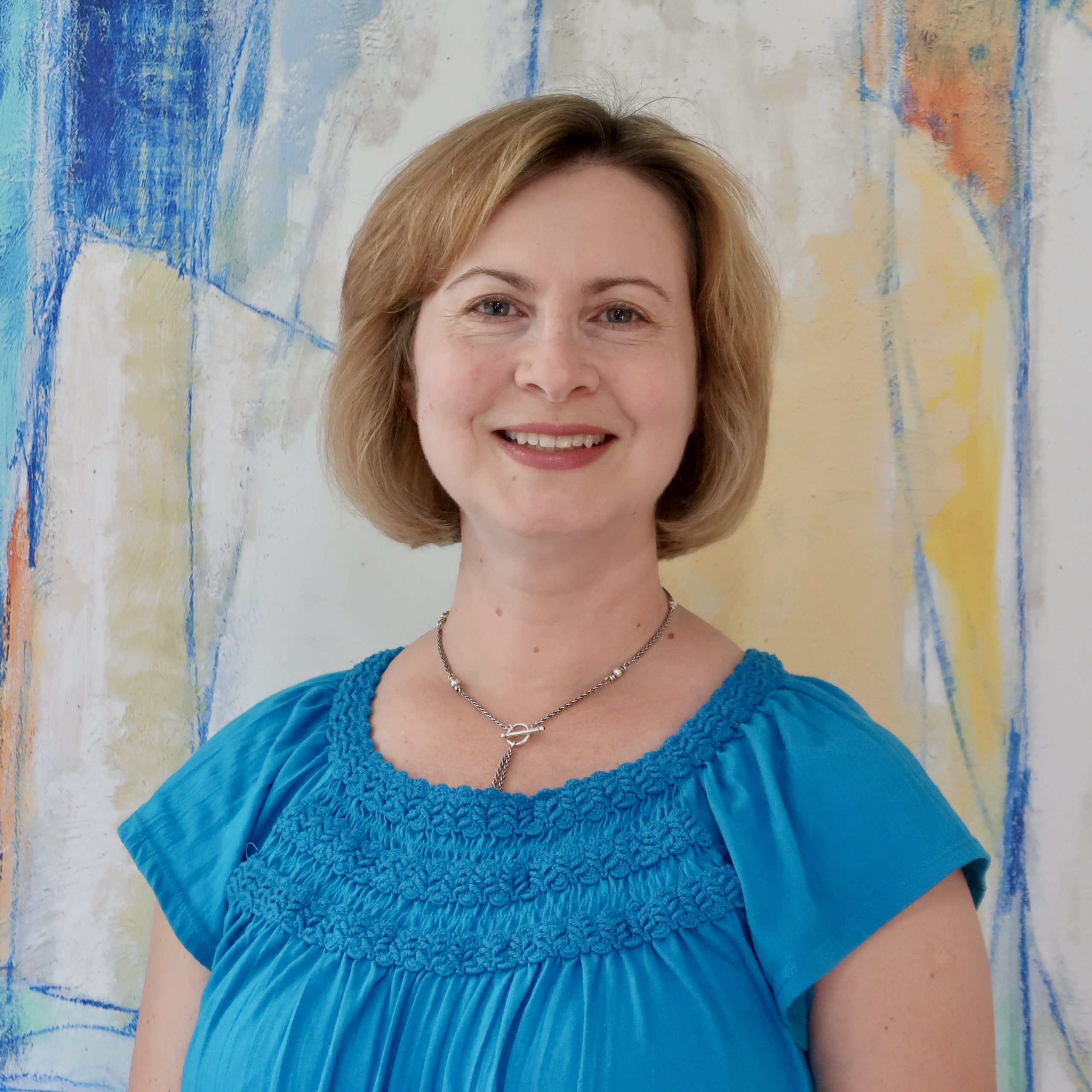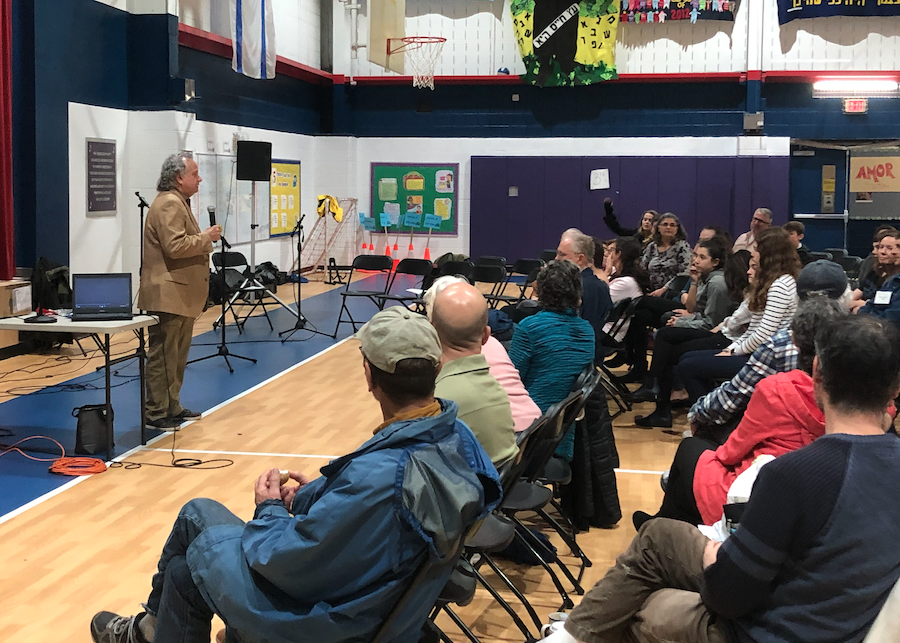My daughter has just finished high school and will be heading off to college soon. Unsurprisingly, she is being peppered with questions about what she intends to study, her thoughts for her future, and, the ever-popular, “What do you want to be when you grow up?”
If you’d asked me this when I was 18, I wouldn’t have hesitated for a split second, I would have said, “doctor.” In fact from age 2 to somewhere in college that was my answer – except a 2 week period when I was about 4 when I desperately wanted to be a trapeze artist.
My path was clear to me. College, med school, internship, residency, physician.
Clearly, things didn’t go as planned.

Like for many, the reality of college science and math classes proved too much for me. But, having had a clear path for so long, I jumped immediately to the next option. Law School.
This path seemed to work for a while. I finished law school, passed the bar, and began working in the field of health policy. For ten years, I stumbled from one job to the next, always hoping that this would be the one that I would, if not enjoy, not hate. It didn’t happen.
What did happen was something unexpected. Through a series of coincidences and unlikely events, I found myself working at Georgetown University’s Office of Campus Ministry. Not a doctor’s office, not a legal office, not a circus tent.
But, I had found my place. Waking up each morning to go to work and be able to discuss religion and philosophy, and meet people with all sorts of different views on God was enjoyable. I loved meeting students and hearing their stories, and watching them find their way in the world, in academics, and in personhood. Many of the students I got to know were interfaith, and many of these were ones who had been shut out of part of their heritage. One or another of their parents’ faiths had closed the door on them, and they (the children) were curious about what they had missed. These situations and those like them spurred me to examine long-held beliefs about interfaith relationships and to find those beliefs short-sighted and damaging.
To make a long story, that most of you have already heard, short. I found my path leading me yet somewhere new, to the rabbinate. Specifically, to be a rabbi for interfaith families and individuals. To be a resource for them, to support them, to teach, and to learn.

Fine. That’s how I got here, to be the Rabbi at IFFP. The ultimate cliche –A wandering Jew. It was a painful journey at times, it was hard, but I have to say I learned and grew and fundamentally appreciated every twist and turn. So, now I’m here. Time to rest on my laurels, right?
I don’t think so.
Both Judaism and Christianity have lots to say about wandering.
Wandering is a major theme in the Torah. Honestly, it’s a major theme throughout human history. Families, tribes, nations have all upped and moved due to drought, famine, flooding, war, disease, and shpilkes in the tuchus (that’s Yiddish for restlessness).
Abraham, at the beginning of his story, was told by God to “go forth from your native land, and from your father’s house to the land that I will show you.” He went forth with high expectations, and with a promise from God that he and his progeny would prosper. His travels were far and wide and painted in a positive light.
Later on in the Torah, the Israelites fleeing slavery in Egypt were punished with wandering. “God was incensed at Israel, and for forty years they were made to wander in the wilderness until the whole generation that had provoked God’s displeasure was gone.” Why were they subject to this nomadic lifestyle? They needed to learn to come together as a people, to trust one another, and to lose their fear of the unknown.
And, of course, throughout the stories of the New Testament, Jesus wandered the length and breadth of Israel (and into Egypt) both due to fleeing danger, and also purposefully, teaching and serving.
So, is wandering a curse or a blessing? Obviously, it can be both. Just like IFFP.
“To explore strange new worlds, to seek out new life and new civilizations. To boldly go where no one has gone before.”
Star Trek Introduction
Borrowing from one of my favorite pastimes, watching sci-fi, I turn to the spoken introduction to each episode of the original series of Star Trek and its first sequel – the next generation; “to explore strange new worlds, to seek out new life and new civilizations. To boldly go where no one has gone before.”
Is this not the epitome of wandering? Sure, there’s a goal. To explore and seek, but you can’t do that if you stay on the same roads you’ve traveled on before. Do the crews of the Starship Enterprise have an easy go at it? Not quite. But, that’s the point. It is in exploring the unknown that growth happens.
Recently, I was researching aspects of religion in science fiction, for a session I’ll be doing later this year. I looked at the Star Wars universe and the Star Trek universe. My first shock, although it shouldn’t have been, was how much material there is on this topic. The second, though, is that there is a fundamental difference between these two universes – even if both are fictional. The Star Trek universe is based on this one, the one whose history and culture include our ancient teachings. And, of course, the Star Wars universe was “a long time ago, in a galaxy far, far away…” so not related to us at all. Leaving aside that both are human creations of fiction, the simple fact that one is based on human history changes the nature of the inherent motivations of the characters. And for my purposes today, allows me to focus on Star Trek.
Star Trek is ultimately an investigation of the joys and fears of discovery. It is a reminder that wandering is essential to humanity. There are a million ways to frame this truth.
“Life is a journey, not a destination.”
“Two roads diverged in a wood, and I—
I took the one less traveled by,
And that has made all the difference.
“Not all who wander are lost”
And, so on.
The 20th-century scholar, Abraham Joshua Heschel encapsulated the beauty and complexity of wandering. He said, “Faith is not the clinging to a shrine but an endless pilgrimage of the heart.” In exploring, in getting lost, and in the finding are the seeds of faith and spirituality, as well as the seeds for empathy and compassion. In other words, wandering is essential for individuals and for humankind.
“Faith is not the clinging to a shrine but an endless pilgrimage of the heart.”
Abraham Joshua Heschel
But, I’m not done wandering. IFFP isn’t my destination. Not exactly, what being here at IFFP gives me are companions on the road. Together, we will face the future. IFFP is a project, we have a purpose, but we are also constantly seeking other, better, different ways to accomplish our goal. Each family, each child, each parent, and grandparent in this community is wandering. Like the Israelites we are learning to trust one another, we are finding our strengths and we are becoming a community. Like Abraham, we have hope and confidence in the future. Like Jesus and the apostles, we have service to give and wisdom to share. We just don’t necessarily know when, where, and how.

Reverend Samantha, in her Christmas eve service, showed us how the Christmas story teaches us to see the unexpected as a source for finding love, patience, and God. That we can not control the present or the future, but that these hiccups in life, these bends in the road, are opportunities. My hiccups, my bends in the road, have brought me to you, and together we have an opportunity to wander and learn and grow.
I am certain that together, this journey will bring the unexpected, will bring us joy, and will create a community that can go boldly where no one has gone before.
Live long and prosper.




